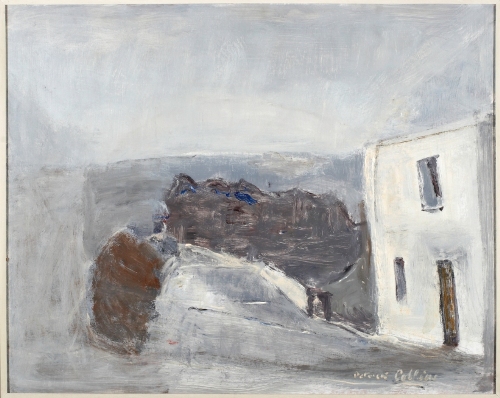Silence under a stone
a novel by Norma McMaster (Doubleday Ireland, €14.99)
Ian d’Alton
Written “out of my own life experience” (the author grew up in Cavan, and is a Church of Ireland minister) this novel is a sometimes difficult read. Not in the literary sense – its touch is sure, its construction works well and its language is clear, elegant and rounded.
No; it is difficult because of what it treats. It raises, and confronts honestly, some extremely uncomfortable questions about love, faith and loyalty. Its punches are never pulled.
Spanning an Ireland from the 1920s to the 1980s, Harriet and Tom Campbell are strict Presbyterians living in the uncertain lands just south of the new Irish border, coming to grips with now being tantalisingly ‘outside the glow’.
Marooned
This Irish Free State seems anything but free to these marooned on the wrong side of a border and a revolution. For this community, an already interior existence is magnified by feelings of isolation, difference and threat, as the Roman Catholicity of the new state asserts itself. The visible border between north and south is mirrored by an invisible – and much more significant – one, between religious communities.
The narrator, Harriet, rails against Catholicism as credulous, authoritarian, prescriptive, with the absolutism of the clerics being the antithesis of what she believes of her Presbyterianism: “I recall how Rome had truly haunted our lives.”
And yet, she’s a prisoner of her faith, too. Her reliance on Presbyterian ministers may be only one of degree, not of kind, when compared to what she believes the relationship between Catholic priests and people to be. After God, it is her only son, James, who is her great love.
This New Testament resonance may underpin the novel, but it is overlaid by a darker reality. Harriet’s husband is an unsympathetic character – “I looked over at Thomas at the kitchen table…while I sat in the corner, lost as a dropped stich”.
A Catholic servant arrives, unwanted by Harriet, and is a subversive force in this introverted, evangelical world. In Harriet’s somewhat fevered vision, the servant is more like a serpent, corrupting the purity and integrity of the household trinity of Thomas, Harriet and James. And James is the focus of the book, as he moves through a progression of Presbyterianism, the Orange Order, and life.
Faith, hope and charity – it is perhaps too much faith, sometimes little charity, and not enough hope that defines Harriet’s relationship with her only son as she contemplates her life in extreme old age from the confines of a Dublin nursing home. Redemption is in short supply, and only comes through revelation.
There is an almost oral-history feel to this thought-provoking tale. It tells of a prejudiced society, prevalent all over Ireland at the time, but especially acute in the border areas.
To this reader, it evokes memories of life as a Protestant in a Catholic state, and of the barriers that could not be crossed without repercussion – on both sides.
The tragedy of the zero-sum game – a loss to one side was invariably seen as a gain for the other – was often accompanied by triumphalism, though not in this novel. A tragic story of unforgiveness, of bearing a grudge against a child for so long, and the consequences, it is a gripping and emotional read, and highly recommended.


 Melancholy Cavan: 'Country Road' by Patrick Collins
Melancholy Cavan: 'Country Road' by Patrick Collins